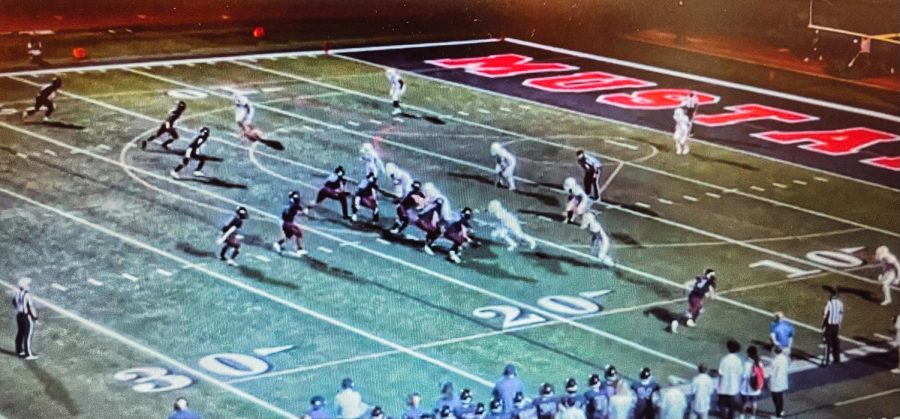How the Crowd Effects the Game
Every sport we have here at Herriman is incredibly important to every player on their respective teams. Players put in hours upon hours of work each week before and after school to perfect their sport. Coaches look forward to their season all year; during the off-season players are doing everything they can to keep in shape and get ready for the next season. Each student works as hard as they can during tryouts to get that spot on the team. All this effort for a few games in a typically short season. Can you imagine how disheartening it can be when no one shows up to cheer you on?
Hearing people chant your name from the stands, having cheerleaders hyping everyone up, listening in as nearly the whole school cheers when a touchdown is scored. It’s all an honor, one that many sports teams don’t get. Most sports teams have become very familiar with the feeling of empty bleachers. The reality of scoring a winning point and having only a few quiet voices to cheer you on. But those people in the audience actually have more of an impact on how you play than most athletes might realize. This all plays into a theory called social facilitation.
Social facilitation is a psychological concept first tested by social psychologist, Norman Triplett in 1898. It is based around the idea that people show an increased level of effort because of the real, imagined, or implied presence of others. In an article by Johns Hopkins University. “When there’s an audience, people’s performance improves.” It describes how people do better on tasks when there is an audience watching. But it’s not that straightforward.
For different people, this means that they could either make more mistakes than they would have without the audience, or they push themselves harder to do better.
When asked how having a large crowd affects pressure and stress, Miles Jenson, who plays for our JV soccer team, said, “Definitely [adds pressure], you’re representing your school,” I’ve heard this from a lot of players, that when we are wearing the school’s name on our backs, especially when we are playing right here at home with our peers watching us it can make the game much more stressful.
Another one of our school’s football players, Garret Huntsman described his experience with how pressure affects him like this, “Yes and no, because some people can talk about the plays you messed up the next week at school, but also they can talk about how good you did during the game.” Messing up plays, missing a shot, fumbling with the ball and other simple mistakes can be almost humiliating when you have to see your friends the next day at school.
Though it can be stressful to play in front of people, most athletes I’ve talked to agreed that it is more fun to play with an audience and it encourages them to give each game their all.
There are also so many sports at our school that are just not talked about enough. For example, one of our clubs, rugby, I had heard of vaguely but didn’t actually know a lot about it. But, after talking to some people I realized we’ve qualified for the state rugby championships almost every year since the school opened. Conversely, we haven’t taken a championship for football since 2015, and yet they have far more spectators. The reason for this is something me and a lot of people don’t really understand, but just looking at the difference in what happens at games tells us a lot.
At football games, everyone dresses up in whatever the theme of that week is, which is often a really fun theme, like neon, or animal print. They also have performances from our drill team, dance company, and cheer team at halftime to get everyone excited to see the rest of the game. They also have tailgates before games and sometimes have activities after the game, like the glow-in-the-dark stomp that happened after the game on August 19th. I’ve heard from many people on different occasions that their favorite part of going to the games was all of the events that take place before, during, and after the game, but why exactly do these events have to happen only at football games?
When I interviewed the SBO vice president, Jonah Schneider, about this topic he said,” typically events like dances or stomps won’t coincide with football games or football-related events, but a lot of the time we do have to plan events like Homecoming specifically around a Homecoming game. When we plan around football it’s usually because we are trying to coordinate a theme or tailgate. Football is pretty much the only sport we plan around besides planned themed games for basketball and other sports.” The only other sports I’m aware of that have themes are volleyball and basketball. For instance, the volleyball game theme from this week was blue-out. These themes can make games a little more fun, but still, they lack the overall effort that is put into football games.
Apart from the comparison of football to other sports, there is also a degree of favoritism when it comes to different genders. I discussed this topic with a girl’s soccer player, Alexandria Barton, who offered her insight, “There are more spectators who don’t know the players who come to the guy’s games when only friends and [family] seem to go to girl’s sports.” This has quickly become a school-wide issue and students brought attention to this during the monthly principles round table.
I’ve experienced this myself, playing girls’ tennis. The only spectators we have are the other girls on the team, family, and sometimes friends. The only real exception to this is the SBOs who are actually required to attend two school events every week. This is a national issue.
On ESPN Sportscenter, women’s sports had only 5.4% of airtime in 2019, even though up to 40 percent of athletes are female. There may be many reasons for this including a lack of knowledge about teams and limited marketing. People have justified it as people having different preferences. But is it this way because men’s sports are actually more interesting? Or because society has conditioned us to think this way?
All of the sports teams here at Herriman deserve our support. We cannot pinpoint one person as the root of this problem but as a student body, we need to do better at supporting all of our athletes. We must cheer them on and encourage them to keep trying.







